Over 60 million real residential IPs from genuine users across 190+ countries.
Over 60 million real residential IPs from genuine users across 190+ countries.
Your First Plan is on Us!
Get 100% of your first residential proxy purchase back as wallet balance, up to $900.
PROXY SOLUTIONS
Over 60 million real residential IPs from genuine users across 190+ countries.
Reliable mobile data extraction, powered by real 4G/5G mobile IPs.
Guaranteed bandwidth — for reliable, large-scale data transfer.
For time-sensitive tasks, utilize residential IPs with unlimited bandwidth.
Fast and cost-efficient IPs optimized for large-scale scraping.
A powerful web data infrastructure built to power AI models, applications, and agents.
High-speed, low-latency proxies for uninterrupted video data scraping.
Extract video and metadata at scale, seamlessly integrate with cloud platforms and OSS.
6B original videos from 700M unique channels - built for LLM and multimodal model training.
Get accurate and in real-time results sourced from Google, Bing, and more.
Execute scripts in stealth browsers with full rendering and automation
No blocks, no CAPTCHAs—unlock websites seamlessly at scale.
Get instant access to ready-to-use datasets from popular domains.
PROXY PRICING
Full details on all features, parameters, and integrations, with code samples in every major language.
LEARNING HUB
ALL LOCATIONS Proxy Locations
TOOLS
RESELLER
Get up to 50%
Contact sales:partner@thordata.com
Proxies $/GB
Over 60 million real residential IPs from genuine users across 190+ countries.
Reliable mobile data extraction, powered by real 4G/5G mobile IPs.
For time-sensitive tasks, utilize residential IPs with unlimited bandwidth.
Fast and cost-efficient IPs optimized for large-scale scraping.
Guaranteed bandwidth — for reliable, large-scale data transfer.
Scrapers $/GB
Fetch real-time data from 100+ websites,No development or maintenance required.
Get real-time results from search engines. Only pay for successful responses.
Execute scripts in stealth browsers with full rendering and automation.
Bid farewell to CAPTCHAs and anti-scraping, scrape public sites effortlessly.
Dataset Marketplace Pre-collected data from 100+ domains.
Data for AI $/GB
A powerful web data infrastructure built to power AI models, applications, and agents.
High-speed, low-latency proxies for uninterrupted video data scraping.
Extract video and metadata at scale, seamlessly integrate with cloud platforms and OSS.
6B original videos from 700M unique channels - built for LLM and multimodal model training.
Pricing $0/GB
Starts from
Starts from
Starts from
Starts from
Starts from
Starts from
Starts from
Starts from
Docs $/GB
Full details on all features, parameters, and integrations, with code samples in every major language.
Resource $/GB
EN
首单免费!
首次购买住宅代理可获得100%返现至钱包余额,最高$900。
代理 $/GB
数据采集 $/GB
AI数据 $/GB
定价 $0/GB
产品文档
资源 $/GB
简体中文$/GB
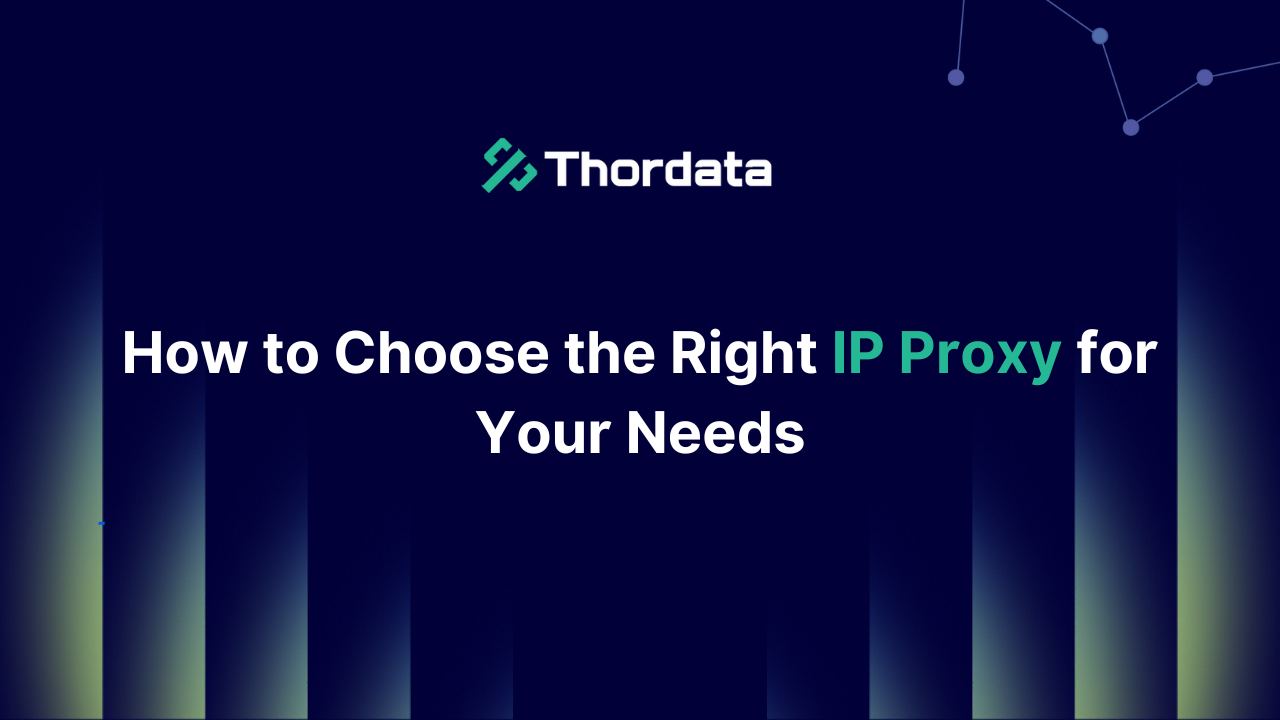

Many beginners find it hard to pick the right IP proxy. The market has three main types—datacenter, residential, and mobile proxies. You need to understand your requirements and each option’s strengths to make a good choice.
Proxy servers have become essential tools that help businesses and individuals’ online tasks. Your choice makes a substantial difference, whether you want a free IP proxy or plan to invest in a premium service. A residential IP routes traffic through addresses that ISPs assign to home-based private networks. These proxies prove more legitimate and reliable than other options. Rotating IP proxy services give you dynamic IP addresses that change regularly. This feature adds extra anonymity layers for specific use cases.
Poor proxy management could lead to detection, bans, and loss of access to important platformsPoor proxy management could lead to detection, bans, and loss of access to important platforms. We created this detailed guide to help you through the proxy options and pick a solution that fits your needs perfectly. Let’s take a closer look at what makes each proxy type special and how you can choose the right one.
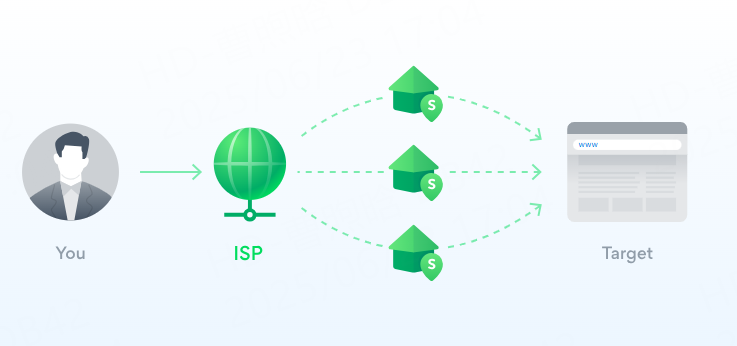
You need to know the differences between IP proxy types to make smart choices. Each type has its own benefits that fit specific needs.
An IP proxy works as a middle server between your device and the internet. Your web traffic goes through this layer that hides your original IP address and gives you a different one. This makes your online activity more private and lets you get past various blocks. These digital middlemen send requests for you, so it looks like you’re browsing from somewhere else.
Big server facilities create datacenter proxies that give you fast speeds at good prices. But websites with smart anti-bot systems can spot and block them easily.
Datacenter proxies offer high-performance IPs, fast speeds, and reliability, making them ideal for high-volume web scraping or automation tasks.
Internet Service Providers (ISPs) give residential proxies to real home devices. These IPs look real because they come from actual homes, so websites have a hard time detecting and blocking them.
ISPs assign residential IPs to devices connected to home networks. Public databases store these addresses with location and ISP details, unlike datacenter IPs. This helps websites check if they’re real.
Residential IPs are better than datacenter options because they look more legitimate. Your connection seems to come from someone’s home instead of a data center, so anti-bot systems are less likely to flag or block you.
Static proxies keep the same IP address during your session. They work well for tasks that need a steady identity, like managing accounts or completing multi-step processes.
Rotating proxies switch your IP address after set times or with each request. This makes you more anonymous and helps you avoid rate limits, IP bans, and anti-scraping blocks. Most residential proxy networks have millions of IPs that change regularly, but many providers let you keep the same IP for specific periods (usually 1-60 minutes) with “sticky” options.
The best IP proxy choice depends on several vital factors that affect performance and value. A thorough evaluation of these elements helps you find a proxy solution that meets your specific needs.
Performance metrics show notable variations among providers. Recent measures reveal average response times ranging from 2 to 15 seconds. Standard deviations fall between 2 to 17 seconds. These numbers highlight substantial performance gaps between services.
Time-sensitive operations need more than just averages. The upper bounds for successful responses range from 5 to 28 seconds, based on your provider. Connection stability tells you how well a proxy keeps its connection without timeouts or breaks.
Proxy anonymity comes in three distinct categories. Each one determines how well your identity stays hidden:
Elite Level 1 Proxies give you maximum anonymity. They strip identifying headers like Via and X-Forwarded-For and remain undetectable as proxies. These proxies are vital for tasks that need complete privacy.
Level 2 Anonymous Proxies hide your IP address but show proxy usage. They provide moderate protection.
Level 3 Transparent Proxies offer minimal anonymity. They expose your real IP address in the X-Forwarded-For header.
Detection tools show surprising differences. A study found that five different proxy detection services flagged anywhere from 4% to 77.5% of identical IP addresses as proxies.
Premium services give you targeting at multiple levels:
● Region (Africa, Europe, Asia-Pacific, etc.)
● Country (using ISO country codes)
● State/province (particularly in the US)
● City-level precision
● Specific ISP targetingSpecific ISP targeting
IP pool size plays a major role in service quality. Larger pools cut detection risk and boost reliability. They provide more alternative IPs during network changes. Tasks like web scraping need extensive IP pools to avoid bans and maintain steady performance.
Proxy services come with two main pricing options:
Pay-Per-GB based charges on data transferred through the proxy. This option works well for users who have changing needs or data-heavy tasks like web scraping. Residential proxies often use this model due to limited IP pools and higher running costs.
Pay-Per-IP charges a fixed fee for dedicated IP addresses. It gives predictable pricing for steady usage patterns. Datacenter proxies and static residential proxies typically use this approach.
Your best choice depends on your predicted usage volume, frequency, and specific needsYour best choice depends on your predicted usage volume, frequency, and specific needs.
Your online activities will work better when you match the right proxy type to your specific use case. Each scenario just needs different proxy characteristics, and picking the right one can affect your results a lot.
Rotating residential proxies are the best solution to scrape and collect data. These proxies switch IP addresses with each request and stop detection and IP bans when you gather large amounts of data. This rotation helps you get past rate limits on websites that restrict requests from a single IP address.
Residential proxies work better than datacenter alternatives on websites with tough anti-bot systems. They use real IP addresses from internet service providers. Your requests look like they’re coming from real users instead of data centers, which cuts down block rates by a lot.
Datacenter proxies give you faster speeds at lower prices if you’re running economical scraping projects with lighter security measures. But websites with advanced security systems can spot and block them more easily.
Sticky session residential proxies are perfect to manage multiple social media accounts as they keep the same IP address for longer periods. Social platforms usually allow one account per IP address and can spot suspicious activity when multiple accounts connect from one place.
Residential proxies let marketers target specific regions and create individual-specific content for different audiences.
Residential proxies with location-specific IPs work best to access geo-restricted content. Make sure your provider has IP addresses in your target country. This lets you browse as if you’re in that location.
Residential proxies from household devices beat datacenter alternatives on streaming services with smart detection systems. Your connection looks legitimate, and you’re less likely to be flagged as a proxy user.
Proxies near game servers cut down latency and ping times. Your data travels less distance, which means faster response times and smoother gameplay.
High-speed residential or datacenter proxies are great for gaming and streaming. Residential proxies give you better privacy while datacenter ones are faster for time-sensitive tasks. Speed and stability should be your top priority when picking gaming proxies to keep your gameplay smooth.
Simple HTTP proxies protect you well enough for general browsing. HTTPS proxies add extra security through encryption, which makes them perfect for sensitive stuff like online payments.
Choosing a trustworthy IP proxy service needs careful evaluation of several key factors. The market has many providers, and knowing what to look for will give you a service that meets your needs without compromising security or performance.
User evaluations and feedback help learn about a proxy provider’s strengths and weaknesses. Review platforms, forums, and social media offer real user experiences. Companies with a long-standing history and positive industry reputation deliver more stable and reliable services. The provider’s background information helps assess their credibility in the proxy market.
Free proxies might seem attractive, but they come with major problems. These services lack proper security measures and leave you vulnerable to data interception. Research shows free proxy lists often contain blocked or dead proxies, and only 1% of listed IPs actually work. Paid proxies protect your data better and give you exclusive access to carefully selected, whitelisted IP addresses. Free options might work for temporary, non-sensitive tasks, but businesses need paid services for reliability and security.
Good technical support makes all the difference when proxy issues arise. Look for providers that offer 24/7 support through email, live chat, and ticket systems. Response times vary among services – some give instant replies through live chat while others take hours or days to respond. Refund policies differ between providers. Most reputable services offer refunds within 3 days of purchase if usage stays under 20% (or 10% for Enterprise plans).
Data retention policies shape your privacy and security. These policies determine how long providers keep your browsing data, connection timestamps, and IP information. Services with strict no-logs policies or minimal retention periods offer maximum privacy. Providers based in privacy-friendly jurisdictions rarely have to surrender user data to authorities. The service should also use strong encryption and authentication measures to protect your connection.
Thordata is a trusted provider of ethical, high-performance proxy services on a global scale. Our expansive network includes residential, datacenter, ISP, and unmetered proxies, enabling seamless access to geo-restricted content and ensuring reliable, compliant data collection from virtually anywhere in the world.
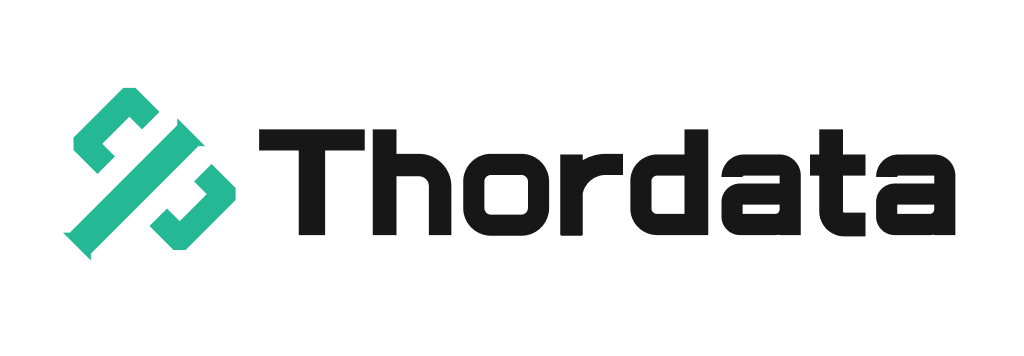
Your specific needs and each proxy type’s unique benefits determine which IP proxy works best for you. This piece breaks down the key differences between datacenter, residential, and mobile proxies in the digital world. Each type serves a specific purpose. Residential IPs give you legitimacy and lower detection risks. Datacenter proxies are fast and cost-effective.
We hope the information provided is helpful. However, if you have any further questions, feel free to contact us at support@thordata.com or via online chat.
Frequently asked questions
What are the main types of IP proxies?
There are three primary types of IP proxies: datacenter, residential, and ISP.
How do I choose between rotating and static IP proxies?
Rotating IP proxies automatically change your IP address periodically, which is ideal for tasks like web scraping where you need to avoid detection and bypass rate limits. Static IP proxies maintain the same address throughout your session, making them better suited for activities requiring a consistent identity, such as account management or multi-step processes.
What factors should I consider when selecting a proxy service?
Key factors to consider include speed and performance benchmarks, detection risk and anonymity levels, location targeting capabilities, IP pool size, and pricing models.
About the author

Jenny is a Content Specialist with a deep passion for digital technology and its impact on business growth. She has an eye for detail and a knack for creatively crafting insightful, results-focused content that educates and inspires. Her expertise lies in helping businesses and individuals navigate the ever-changing digital landscape.
The thordata Blog offers all its content in its original form and solely for informational intent. We do not offer any guarantees regarding the information found on the thordata Blog or any external sites that it may direct you to. It is essential that you seek legal counsel and thoroughly examine the specific terms of service of any website before engaging in any scraping endeavors, or obtain a scraping permit if required.
 Looking for
Top-Tier Residential Proxies?
Looking for
Top-Tier Residential Proxies? 您在寻找顶级高质量的住宅代理吗?
您在寻找顶级高质量的住宅代理吗?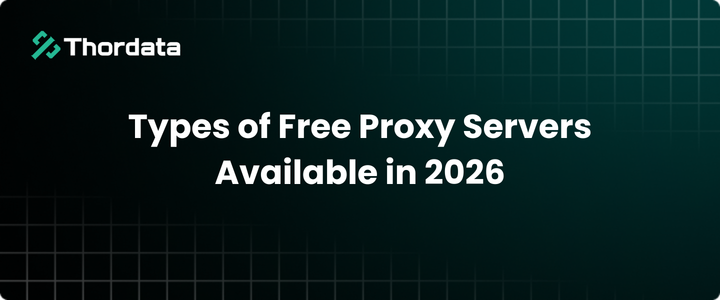
Types of Free Proxy Servers Available in 2026
These are raw directories ofte ...
Jenny Avery
2026-02-01
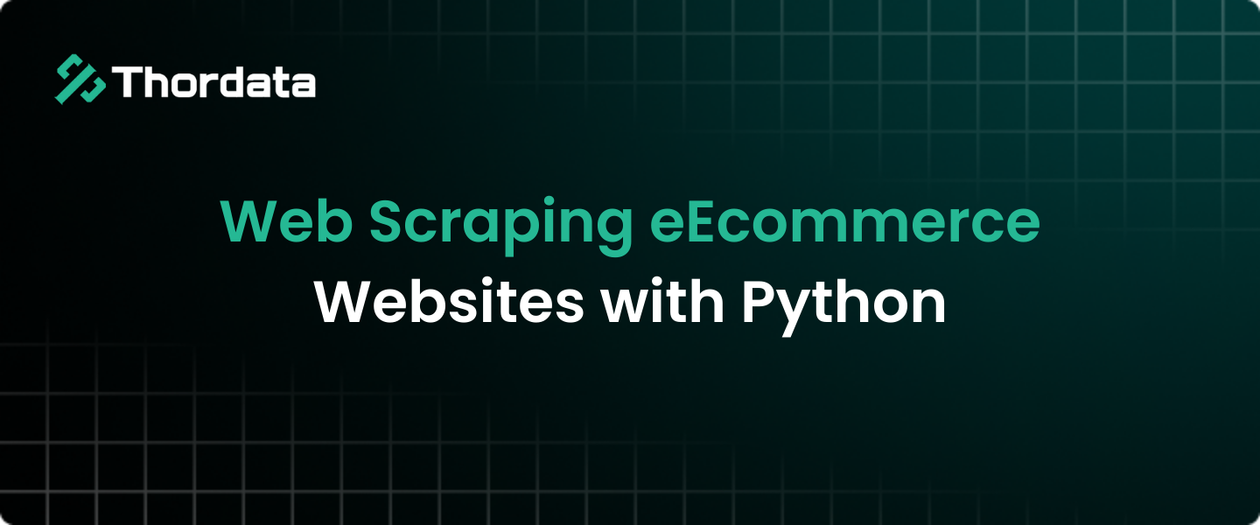
Web Scraping eCommerce Websites with Python: Step-by-Step
This article provides a detail ...
Yulia Taylor
2026-01-29
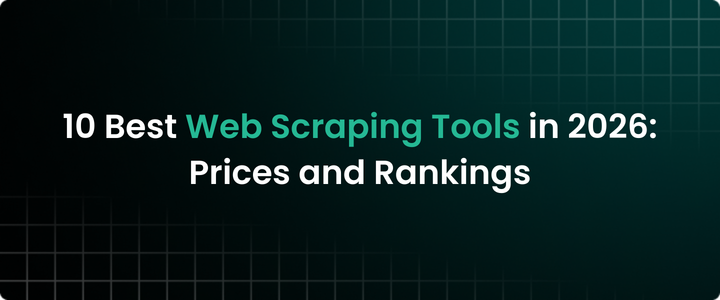
10 Best Web Scraping Tools in 2026: Prices and Rankings
In this article, discover the ...
Anna Stankevičiūtė
2026-01-29
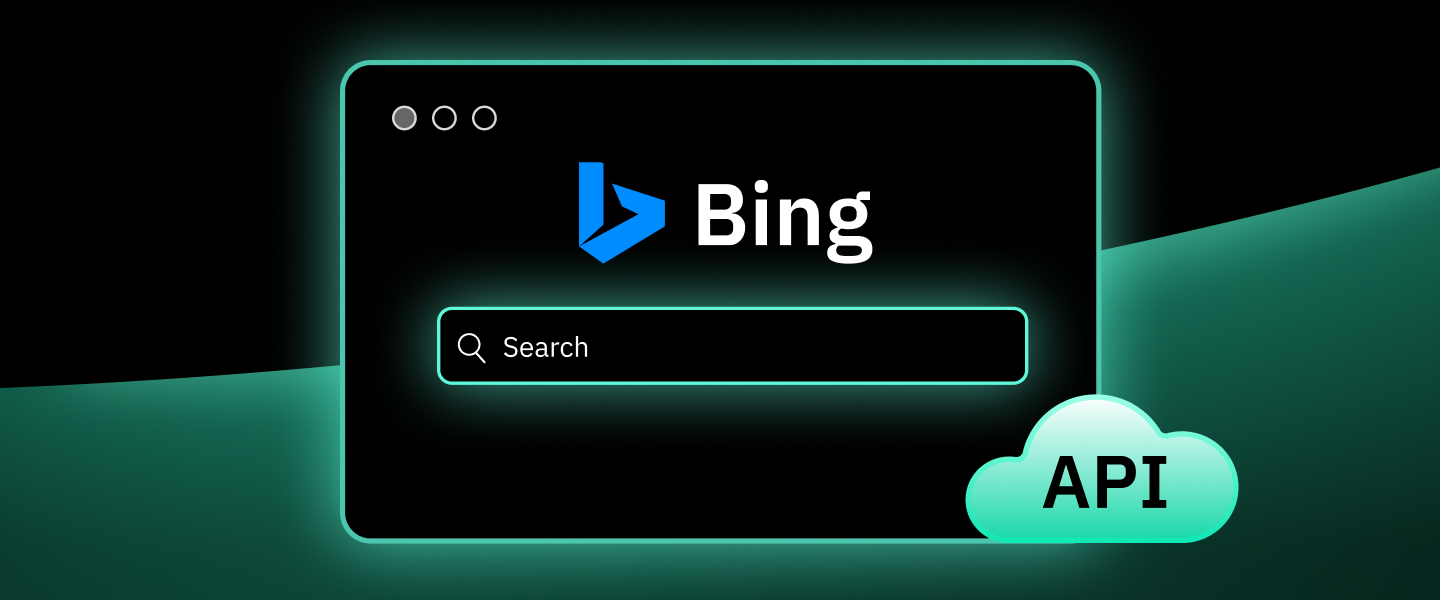
Best Bing Search API Alternatives List
Discover the best alternatives ...
Anna Stankevičiūtė
2026-01-27
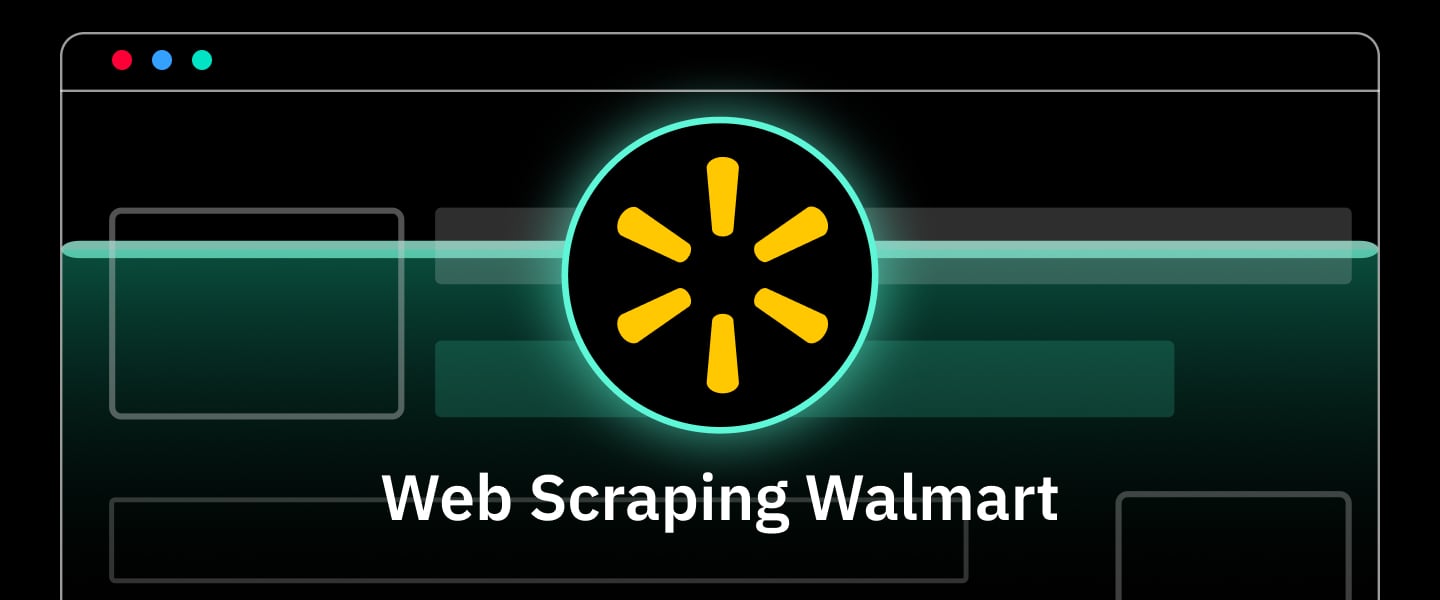
The Ultimate Guide to Web Scraping Walmart in 2026
Learn how to master web scrapi ...
Jenny Avery
2026-01-24
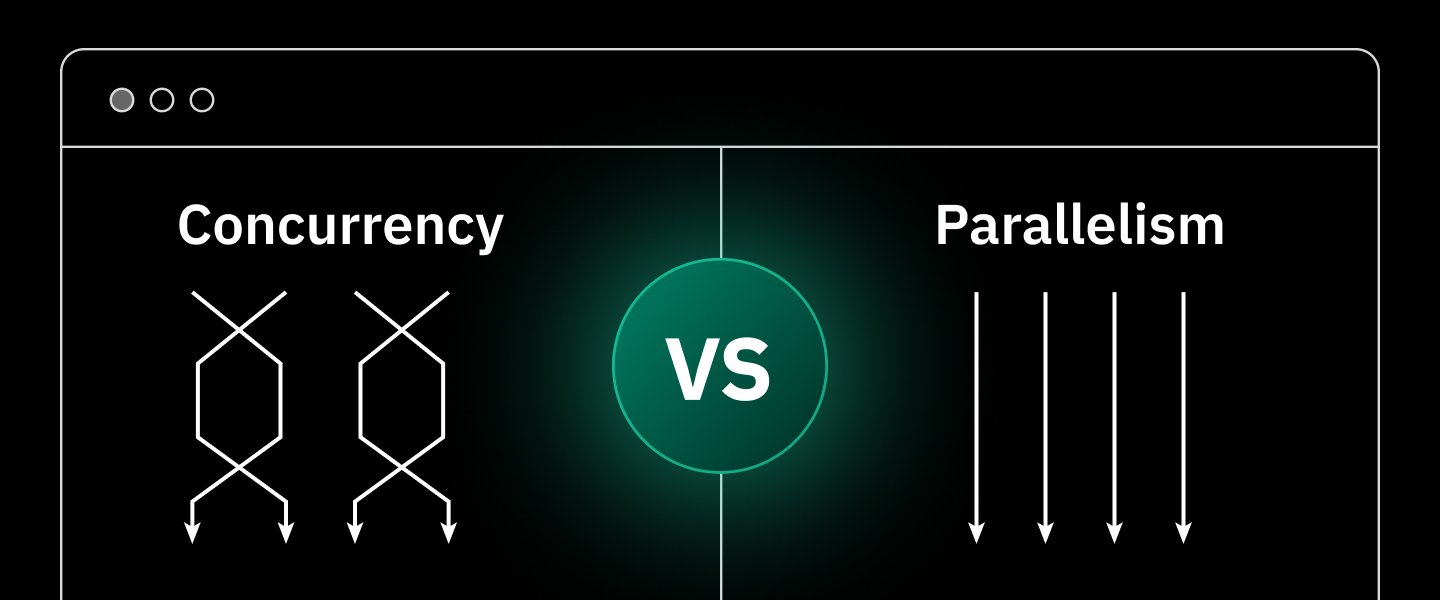
Concurrency vs. Parallelism: Core Differences
This article explores concurre ...
Anna Stankevičiūtė
2026-01-24

Best Real Estate Web Scraper Tools in 2026
Learn about the leading real e ...
Anna Stankevičiūtė
2026-01-23

Playwright Web Scraping in 2026
Learn how to master Playwright ...
Jenny Avery
2026-01-22
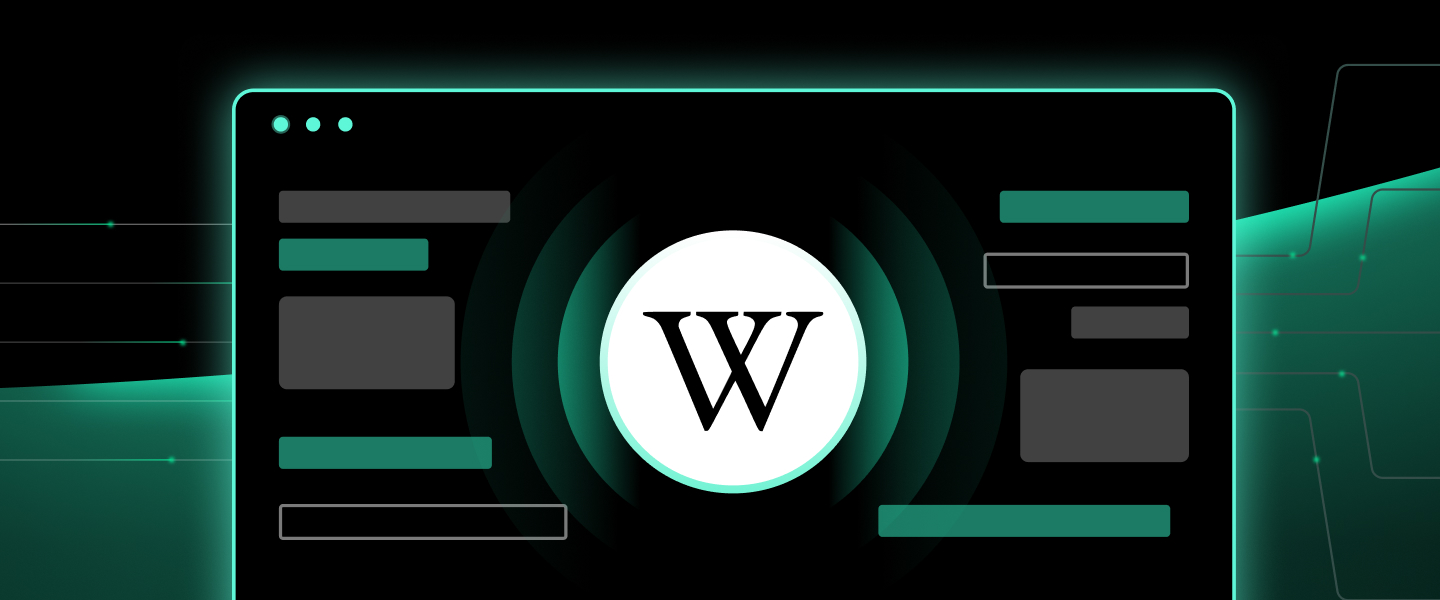
Top 5 Wikipedia Scraper APIs for 2026
In this article, we will help ...
Anna Stankevičiūtė
2026-01-19